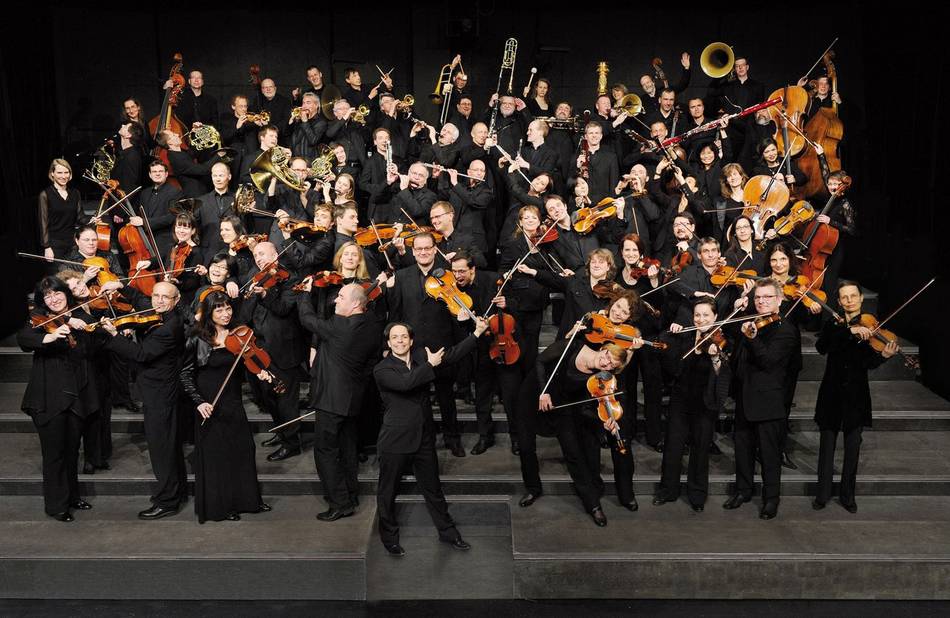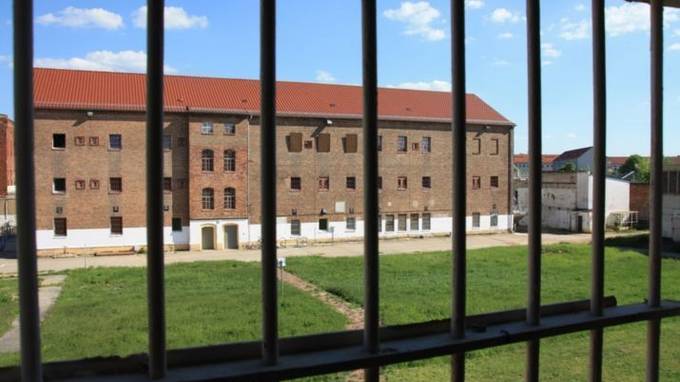Fidelio at the Zuchthaus Cottbus
Seven performances of Beethoven’s “freedom opera”

In summer 2014, the Cottbus Human Rights Centre organised a two-week “Peace and Democracy Festival” at the Cottbus Prison Memorial Site. The festival presented various event formats which address such issues as war and peace, civil courage and the reappraisal of the SED dictatorship. The main highlight of the festival were seven open-air performances of the opera “Fidelio” by Ludwig van Beethoven in cooperation with the Staatstheater Cottbus. The project was part of the European Year of Contemporary History 2014, a commemorative event established by the Federal Foundation for the Reappraisal of the SED Dictatorship in commemoration of the 100th anniversary of the First World War, 65th anniversary of the German constitution and the 25th anniversary of the Peaceful Revolution. The year 2014 also marked the 200 anniversary of the world premiere of the final version of “Fidelio”.
The Zuchthaus Cottbus was built in the mid-19th century as the Royal Central Prison. After World War II, it was one of the largest prisons for political “enemies of the state” in former East Germany. Until it was closed in 1989, more than 20,000 people were incarcerated there for such crimes as attempting to flee the country or supporting so-called anti-government agitation. West Germany succeeding in securing the freedom of many prisoners by delivering goods to East Germany with a total value of about 3.5 billion DM. The Cottbus Human Rights Centre Association (est. 2007), most of whose members are former political prisoners, purchased the prison in 2011 and has worked since then to renovate and expand the site as an exhibition venue and a place of commemoration.
The performance of “Fidelio”, Beethoven’s magnificent opera of escape and liberation, introduced audiences to the history and architecture of the memorial site. The inner courtyard and other parts of the premises served as the stage for the production by the Staatstheater Cottbus. General theatre director Martin Schüler and general musical director Evan Christ werde in charge of the artistic and musical direction. The opera chorus was augmented by choirs and interested citizens from around the region. Former political prisoners were included in the “Prisoners’ Chorus” – one of the most famous musical motifs in operatic history, symbolising the liberation from tyranny and despotism and the rescue of an innocent hero.
The Staatstheater Cottbus produced “Fidelio at the Zuchthaus Cottbus” together with soloists from the theatre and guests who performed in leading roles. The part of Leonore (Fidelio) was played by the sopranist Miriam Gordon-Stewart, the American tenor Craig Bermingham, has performed as a soloist at numerous theatres, e.g. the Stadttheater Dortmund, where he played the role of Florestan. A total of some 200 artists participated in the project.
Musical director: Evan Christ (US)
Director: Martin Schüler
Choir production: Christian Möbius
Künstler/innen / Besetzung: Miriam Gordon-Stewart (Leonore/Fidelio), Graig Bermingham (Florestan) (US), Andreas Jäpel (Don Pizarro), Jörn E. Werner (Rocco), Heiko Walter (Minister), Cornelia Zink / Debra Stanley (Marzelline), Hardy Brachmann / Dirk Kleinke (Jaquino), Dirk Kleinke / Matthias Bleidorn (1. Prisoner), Ingo Witzke (2. Prisoner),
Ensembles: Opernchor and Extrachor Staatstheater Cottbus, Singakademie Cottbus e. V., Philharmonisches Orchester des Staatstheaters Cottbus.
Contact
Menschenrechtszentrum Cottbus e.V.
Bautzener Straße 140
03050 Cottbus
www.menschenrechtszentrum-cottbus.de (external link, opens in a new window)
Staatstheater Cottbus
Lausitzer Straße 33
03046 Cottbus
www.staatstheater-cottbus.de (external link, opens in a new window)

